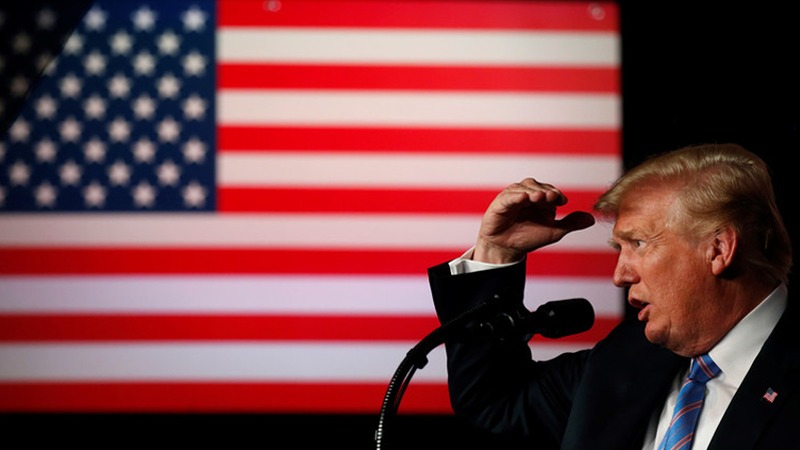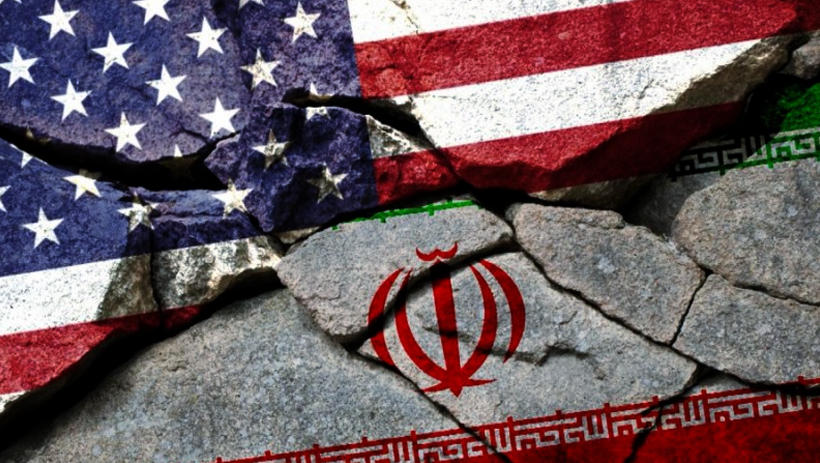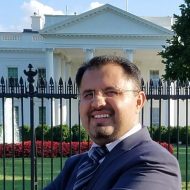02/19/2019
Trump’s Iran strategy: regime change or regime collapse?

When Donald Trump took office in January 2017, he made it clear that countering Iran was a top priority on his agenda. Trump ripped up the Iran Nuclear Deal, also known as JCPOA; reimposed pre-JCPOA sanctions and even added new ones that were unprecedented in terms of their scope and scale; and put Iranian citizens, activists and fugitive political dissidents on the US travel ban list while at the same time, hypocritically expressing concern about their human rights abuses at the hands of Iranian regime.
These harsh measures made many wonder if the Trump administration’s next move would be a direct confrontation or even a military invasion and whether the Iranian regime’s days are numbered. To be clear, Iran is not a democracy and its sham elections are neither fair nor free. Tehran plays a destructive role in the Middle East region; persecutes dissidents; and clamps down on its citizens’ basic rights. Nevertheless, the current US administration is not necessarily upset with Tehran’s domestic suppression; it rather is infuriated by the Iranian regime’s activities abroad including its Shiite expansionism, the spread of sectarianism, and specifically, targeting US troops via its proxies in the region.
Regime collapse and Venezuelaization of Iran
Despite public perception, President Trump is not interested in another full-blown war in the Middle East which may cost US economy billions of dollars and tens of thousands of soldiers’ lives. Besides, Trump, in many occasions, has criticized former president George W. Bush for his invasion of Iraq.
All former Bush administration officials should have zero standing on Syria. Iraq was a waste of blood & treasure.
2 998 человек(а) говорят об этом
Thus, the Trump administration is not necessarily after a war and an Iraq and Afghanistan-style regime change in Iran but rather, it wants to see a regime collapse – and preferably a failed state – in Iran, just like what has happened and still is happening in the former Soviet Union, Zimbabwe, Syria, Yemen, and Venezuela. This approach can explain why the US is ignoring pro-democracy and liberal forces within Iranian opposition and is rather lending support to far-right elements including pro-Monarchy groups as well as far-left organizations such as Marxist- Islamist cult, Mujahedin e Khalq organization, MEK, the very group that John Bolton frequently attends their annual DC and Paris meetings.
If anything, this support for extremist far-right and far-left elements of Iranian opposition abroad is an indication of the fact that the current US administration is not interested in regime change or even helping Iranian people help themselves in getting rid of the current Islamist dictatorship. The administration is rather interested in a more weakened Iran, preferably a failed state, that is overwhelmed with serious domestic issues and ethnic-sectarian conflicts.
The chances that the US succeeds in Yemenization and Venezuelaization of Iran as another failed state are not negligible at all as Iran’s sanctions-hit economy is already on the verge of collapse and the social and political unrest is constantly spreading all over the Islamic Republic. However, a more benign and a win-win approach in countering Iranian regime’s repressive domestic policies, its malicious regional activities and its Shiite imperialism, would be to support liberal voices. Some might argue that those voices are a rare commodity in the Middle East, however, Iran doesn’t fall short on liberal voices even if they are not as vocal and vociferous as US-supported far-right and far-left extremist groups. The reason behind this lack of support is that the pro-democracy forces seek regime change but through peaceful means and strongly oppose any regime change through a US military venture or any Venezuela-like regime collapse.
How serious is the possibility of war with Iran?
Donald Trump is anything but a warmonger. He doesn’t want Iraq and Afghanistan-style regime change because another costly war in the Middle East goes against his “America First” policy, according to which, bringing remaining US troops back home is a priority. Trump is not happy with the overstretched US military presence all over the globe, as he repeatedly made it clear the United States is not the world’s policeman. He is also aware that the US public is not ready for another long and devastating war.
However, the same argument cannot be made about his belligerent foreign policy and national security team including Mike Pompeo, John Bolton and a staunch Iran hawk Richard Goldberg who desire regime change in Iran at any price including military invasion and large-scale death and destruction. To name a few instances of pro-war approach, Richard Goldberg has repeatedly asked for a military strike on Iran in the past and the US National Security Council, led by John Bolton, requested the Pentagon for plans for a military strike on Iran last September, according to a report by the Wall Street Journal, citing current and former U.S. officials.

These hawkish elements are not reluctant to see a situation where the Iranian theocratic dictatorship is replaced with a friendly regime (not necessarily a democratic one) that can better secure US national and security interests. Regional countries such as Israel and Saudi Arabia are eager to drag the Trump administration to war with the Islamic Republic, too.
Therefore, even though war is not necessarily President Trump’s priority, other players, including Trump’s companions in the White House, Israel, and Saudi Arabia, seek for it desperately and any provocation by Iranian revolutionary forces (IRGC) in the region or any US attempt to physically interrupt Iran’s oil exports from the Persian Gulf may escalate to a full-fledged war.

Ahmad Hashemi
Ahmad Hashemi is an Iranian freelance journalist and a senior expert in the Middle East region and global geopolitical trends. He has a bachelor's and a master's degree in politics from the University of Tehran. He is currently pursuing another Master’s degree in the Missouri State University’s Department of Defense and Strategic Studies, located in Washington D.C. metropolitan area. On Twitter: @MrAhmadHashemi

No comments:
Post a Comment